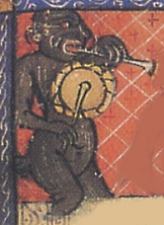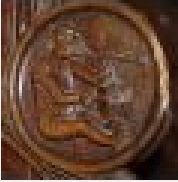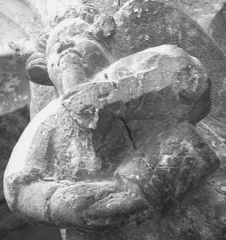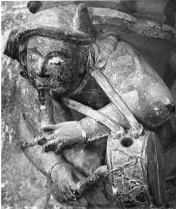 |
|
 flabiol without keys flabiol without keys |
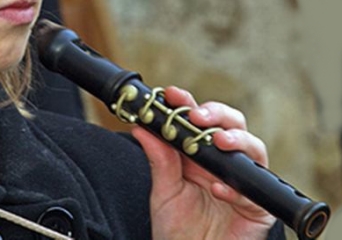 flabiol with keys flabiol with keys |
The pipe (flabiol); the player is a flabiolaire. Three keys were added at the end of the 19th century to improve the range of sounds: Josep Plans came up with a fourth key in the 1950s.
The drum is 'tambori'.
"...The flabiol and the drum are possibly the most successful elementary formation in Catalan music.
Due to its extensive presence in time, without interruption since the 13th century" |
|
| |
|
|
|
|
|
|
|
Àngel Vallverdú has written a dissertation on the giants, in Spanish.
'The flabiol and the troupe of giants of the city of Barcelona.
A paradoxical continuity.' It contains more illustrations. |
| |
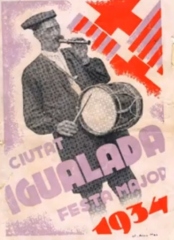 1934 poster 1934 poster |
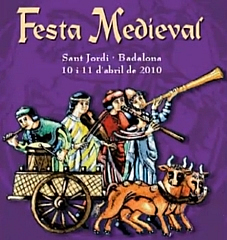 2010 poster 2010 poster |
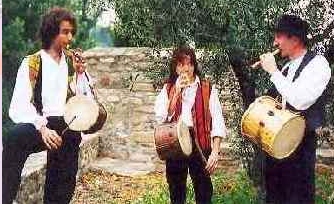 21st century players 21st century players |
|
|
 2013 flabiol festival 2013 flabiol festival |
|
|
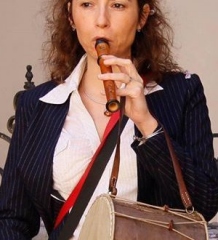 Isabelle Garcia Isabelle Garcia |
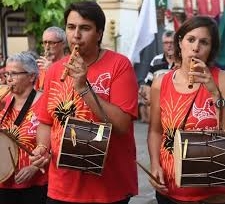 parade parade |
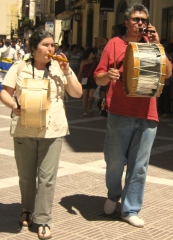 Teresa Mitjans and Rafel Mitjans Teresa Mitjans and Rafel Mitjans |
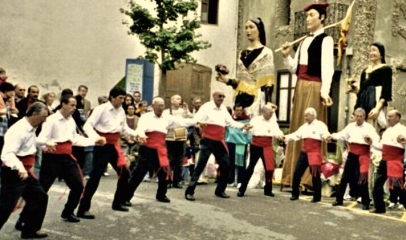 Carles Mas playing for dancing Carles Mas playing for dancing |
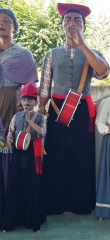 2021 Castellbisbal Giants 2021 Castellbisbal Giants
|
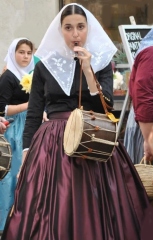 female player female player |
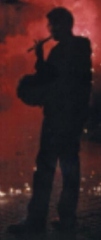 night night |
|
|
| |
cobla (band) |
The band now consists of 11 players of mainly brass instruments including one pipe and tabor player.
The latter plays a small drum
of about 10 to 12 cm diameter, of wood or metal, and sits in the first row
on the extreme right of the band. [video here] The cobla
plays for the national dance, the sardana.
The music always starts with a solo from the flabiol player. |
 |
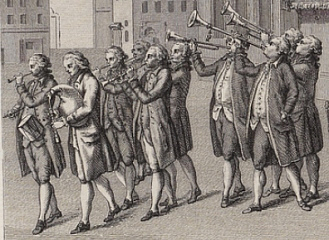 |
| 1780 cobla band in Roissillon, which is now part of France |
|
|
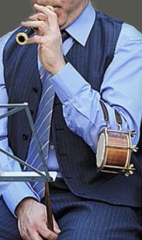 flabiolaire flabiolaire |
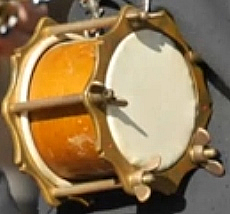 tambori tambori |
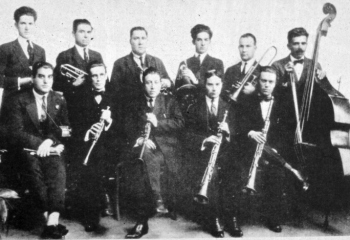 20th century cobla band 20th century cobla band |
|
|
|
|
|
stick dances |
|
| |
stone carvings |
|
| |
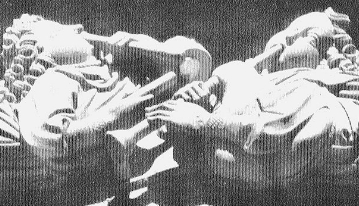 palace of King Martin, Barcelona palace of King Martin, Barcelona |
|
|
| |
bagpipe with pipe and tabor |
| This tradition was dying out in Catalonia by the early 20th century but was brought back from Majorca and is now thriving again. |
|
|
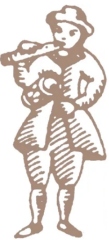 logo used by logo used by
Adifolk Folklore Association |
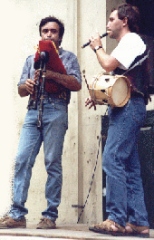 21st century 21st century |
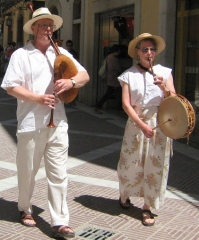 21st century Steve Rowley and Gillian Guest, 21st century Steve Rowley and Gillian Guest,
members of the Taborers Society in Vilanova |
| |
string drum |
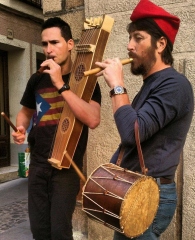 2013 Catalonia, Spain 2013 Catalonia, Spain |
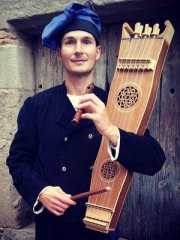 2014 2014 |
|
|
|
Catalan music
"All the riots of the old regime had been led by a musician, often a flabiolaire or bagpiper, as if it were the
procession of authority
and dance. The musician had an obvious social and, at the same time, emotional power,
so the church condemned them and wanted
to control them, because it needed them. That is why the popular
musician who played the bagpipe or the flabiol was considered
dangerous and spokesman for the devil at the party,
of lust, of excess. In witch trials, the devil always plays the flabiol - or the
bagpipe of the wild shepherds.....
Many times the same musicians who play instruments conducted by the chapel master inside the
church are rented
under the name of cobla for street functions,
|
|


